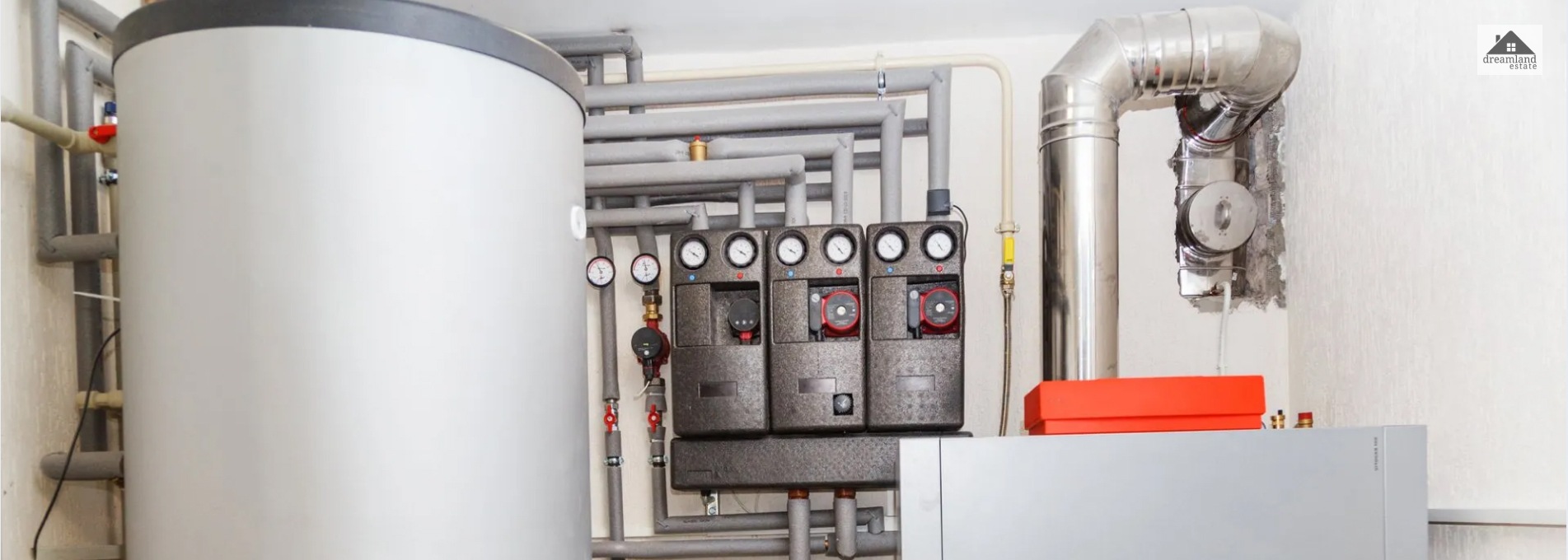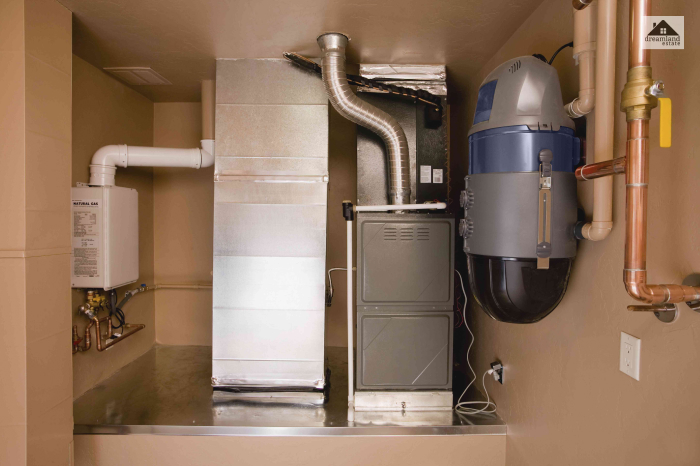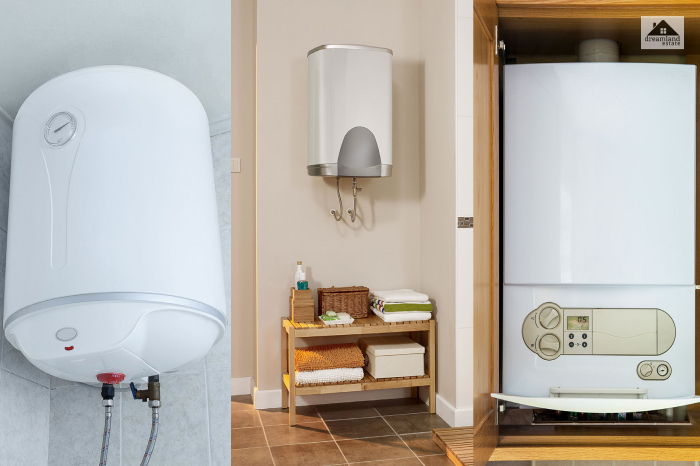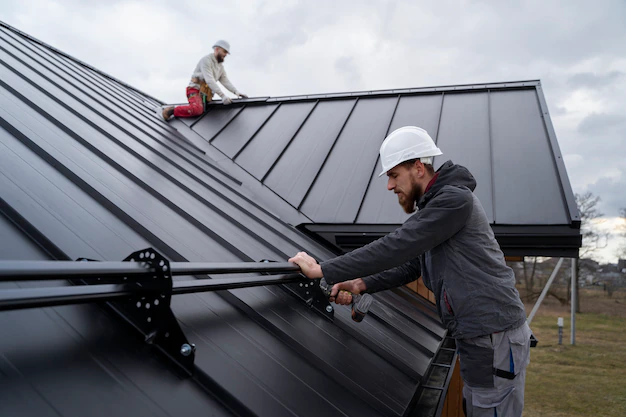Boiler Vs Furnace – What Are The Differences? And Which Is The Best For You?

Most people in the United States choose either a furnace or a boiler as a source to heat their homes. The two systems of heating use two completely different sources to generate heat. Whereas a furnace heats the air and distributes it throughout the house through duct-work, boilers heat water and generate either steam or hot water for heating.
This article aims to present to you a descriptive study on Boilers vs. Furnaces which will help you to dig deep into the topic, which will, in turn, benefit you when you decide to buy either one for your home, office or any such accommodation.
The steam diffuses through pipes to the steam radiators, and the hot water distributes through radiant floor systems or baseboard radiators, or heats the air with the help of a coil.
Steam boilers operate at higher temperatures than hot water boilers and are inherently less effective, although high-efficiency versions of all types of furnaces are currently available on the market.
What Is A Furnace?

A furnace gets its power by electricity, propane, natural gas, or heating oil. This system operates by drawing in the cool air and transferring it to the furnace via ducts.
After the air reaches the furnace, it is then filtered, heated, and pushed back inside your home through the same network of ducts.
What Is A Boiler?

Unlike a furnace that uses air to warm your house, a boiler relies on hot water, which essentially makes it a special-purpose water heater.
A boiler also uses natural gas, propane, electricity, or propane to heat the water in its tank and then pushes the water via a venting system to warm your home.
Once the water cools, it is sent back to the boiler to get reheated and recirculate through your home.
Boilers Vs. Furnace: Difference
The major difference between boilers and furnaces lies in the ways by which they create heat and distribute it throughout the home.
Hence, both furnaces and boilers have unique strengths and weaknesses that differentiate one from the other.
- The heat from a boiler evenly distributes inside your house than the heat from a furnace. This will result in lesser cold pockets in your rooms, and it is easier to maintain a consistent temperature with a boiler.
- Boilers are less noisy than furnaces. Usually, a boiler makes absolutely zero noise, but a furnace will; even if it varies, a furnace is never completely silent.
- The air produced in a boiler is of a higher quality than a furnace. If you are prone to asthma or are allergic, you should refrain from using a furnace as they may have additional allergens in the air.
- A furnace tends to produce air that is drier than boilers, which leads many homeowners to install additional humidifiers along with furnace heaters.
- Whereas boilers may be used with radiant floor heating, doing the same for a furnace is not technically possible.
Boilers Vs. Furnace: Cost

While differentiating between the pros and cons of boilers vs. furnaces, you surely have noticed that boilers are more advantageous than furnaces. Hence, the advantage of a boiler clearly reflects n their price difference. Boilers are a lot more expensive than furnaces.
The total cost of a boiler and all its succeeding installations calculates two to three times more than the total cost of purchasing and installing a furnace.
In usual cases-
- The price of a gas furnace lies between $600-$1,000.
- The starting price of a gas boiler is around $1,500 and varies with its size and efficiency.
- The price of an oil furnace falls between $1,000-$1,600.
- The price of an oil boiler falls between $2,000-$5,000.
While the installation costs of a furnace may be around $1,200-$5,000 depending on the fuel that runs it, installing a boiler, on the other hand, may cost between $5,000-$8,000 based on its fuel.
You may also find purchasing a furnace more economical if you get it installed with the Central Air System. By using a combination of both, you can avoid paying extra for ductwork.
Boilers Vs. Furnace: Efficiency

When deciding on buying a boiler or a furnace, it’s not just the cost or the type that will play a factor; it is also the efficiency that is the major factor that you must look for.
The more the efficiency of the heater, the less amount of energy it will consume in order to operate. The Annual Fuel Utilization Efficiency [AFUE] rating is one way to measure the efficiency of your heating system.
The Federal Trade Commission has made it mandatory for all new boilers and furnaces to post their AFUE rating so that customers can compare the efficiency of the different models and types. This rating gives an estimation of how well each appliance has the capacity to convert energy into heat on an annual basis.
For example, an AFUE rating of 90% would mean that the appliance has the capacity to convert 90% of the total energy into heat, where the energy lost during transmission through ducts or chimneys is not taken into consideration.
An electric boiler or furnace does not experience fuel loss through a chimney. Hence the AFUE rating for both types of heaters stays between 95% to 100%. Despite being highly efficient, the high cost of electricity in most parts of the country makes electric boilers and furnaces an uneconomic option. It is far better to go for a heat pump if you are looking for an electric heating system.
Boilers Vs. Furnace: Maintenance

It doesn’t really matter if you have a boiler or a furnace; if you are not maintaining it, there is no way that it will function at its optimum level. This means you are at risk of losing more money while getting less efficient heating.
Although the heating systems in which a furnace or a boiler is used may vary, there are some general ways in which you can maintain a boiler or heater, irrespective of the system it operates under.
- Check the vent connection pipe and chimney. A problem in the chimney may be a reason why you need to install new equipment that doesn’t require the existing chimney.
- Check the heat exchanger.
- Adjust the boiler and furnace controls to ensure that the settings are best for water or air temperatures to get comfort and efficiency.
To Conclude
To conclude, it is safe to say both boilers and furnaces have their own benefits and drawbacks. Hence, there is no exact answer to which one is better than the other. It totally depends on the budget and needs of the customer to make a choice while making a choice between boilers vs. furnaces for their house or any other accommodation.
Let’s Learn More From Us:











Leave A Reply